Results
-
 £80.99
£80.99Celebration Folklorique - Jutras
This publication marks Andr Jutras' 25-year association with C.L. Barnhouse Co. and will certainly become a classic of band literature in the years to come! You can again expect Andr's unique signature touch of fresh harmonies, beautiful melodies and full, solid orchestration that will make your band shine and sound at its best in any concert or festival situation. If you wish to challenge your musicians you can also turn this piece into a longer French-Canadian folk song suite by performing it in conjunction with this composer's much celebrated "Three Folk Miniatures". A welcome addition to your music library!
Estimated dispatch 7-14 working days
-
 £74.99
£74.99Flying Cadets - Karl L. King
The vault of musical treasures at the C.L. Barnhouse Co. has yielded another classic march composed by the great Karl King, now masterfully arranged by James Swearingen. It goes without saying that King was a master at creating tuneful marches that have certainly stood the test of time. You can be assured that this latest edition is certain to be a real crowd pleaser of monumental proportion. A musical treat!
Estimated dispatch 7-14 working days
-
 £113.00
£113.00United Artists - Kenneth Fuchs
From the striking opening chords to the blazing woodwind passages and dynamic brass and percussion writing, you are in for a special treat with this powerful concert opener by acclaimed composer Kenneth Fuchs. Commissioned by the USAF Academy Band, Colorado Springs, CO, this is certain to become in important addition to the repertoire for winds. Dur: 5:30
Estimated dispatch 7-14 working days
-
 £129.99
£129.99Aquarium - Johan de Meij
The Suite 'Aquarium' is Johan de Meij's third composition for symphonic band and features six tropical fishes, each of them represented by a motif, and surfacing as such in several guises. The composition consists of three movements of which the second and third merge uninterruptedly into each other. I) Allegretto grazioso (Neon Tetra, Electric Eel and Angelfish) II) Andante / Adagio (Sea Horse and Zebrafish) III) Finale: Allegro giocoso (Guppy & Co.) The Neon Tetra motif functions as a kind of 'Leitmotiv' and descibes the beautifully coloured, frisky fish: A number of variants have been derived from this theme and will also appear in the other movements.The Electric Eel in fact is not represented by a motif, but by a rhythm based on the restless electric pulses made audible in some aquaria. The Angel fish is represented by elegant cluster chords. In the second movement the Sea Horse emerges out of the water vegetation and starts a dialogue with the Zebrafish, which is represented by one melodic phrase in unison, getting more and more threatening by added parallel fifths and octaves. Simultaneously with the Sea Horse motif the Neon Tetra theme emerges, this time in 3/4 time and in Eb minor. The third movement starts with only two instruments (trumpet and xylophone), but as it is often the case with Guppies their number rapidly increases. Piccolo and Alto Saxophone introduce the Guppy Theme followed by several instrumental combinations. Every theme from the first movement 'swims by' once more, after which the principal motif leads us to a brilliant ending.
Estimated dispatch 7-14 working days
-
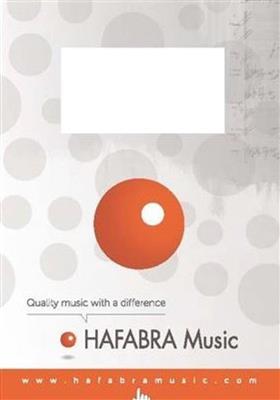 £117.80
£117.80Freedom Defended - Rossano Galante
Inspired by the non-violent civil rights protest of February 1, 1960 against a segregated lunch counter in Greensboro, NC, Freedom Defended strives to encapsulate the story of this now historic event. Commissioned by the band directors of the North Carolina Central District and East Central District Bandmasters Associations, this four movement piece honors each of the North Carolina Agricultural and Technical State University students known as the "Greensboro Four", Joseph McNeil, Franklin McCain, Ezell Blair Jr., and David Richmond. Their actions directly led to the Civil Rights Act of 1964 which mandated desegregation in public spaces. Movement 1 (Da Sogno) - The opening thematic material is dream-like and idyllic as the "Greensboro Four" enter the Woolworth Store at 132 South Elm Street and peacefully sit at the lunch counter and order coffee. Movement 2 (Con Fuoco) - The piece takes a dark turn when they are refused service and are told "We don't serve Negros here". The music is somewhat dissonant and rhythmic but a heroic theme captures the tenacity and courage of these brave young men. Movement 3 (Molto Cantabile) - A plaintiff theme portrays the hopelessness the four freshmen faced as they continued to be refused service until they leave when the store closed that night. Movement 4 (Con Spirito) - Undeterred, the "Greensboro Four" returned the next day, this time joined by more than twenty other black students. While they were again refused service, the sitins began to attract media attention and each day more and more students, both black and white, joined the cause. By February 4th, over 300 students staged sit-ins not only at the Woolworth Store but also the lunch counter at Greensboro's S. H. Kress & Co. The music is rejoicing and uplifting, similar to the opening statement, but now fully orchestrated and more fully developed. Coda - a quiet theme based on the motives from the opening thematic material brings the work to a reflective close as we remember these four men who, in the face of adversity, stood up for equality for all men and women.
Estimated dispatch 7-14 working days
-
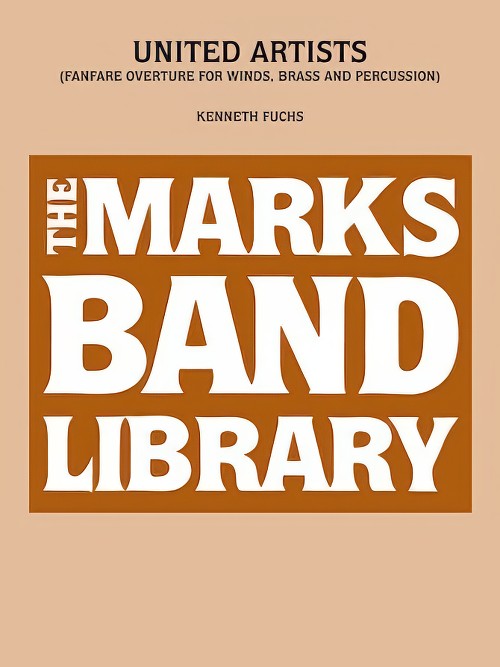 £113.00
£113.00United Artists (Fanfare Overture for Winds, Brass and Percussion) (Concert Band - Score and Parts) - Fuchs, Kenneth
From the striking opening chords to the blazing woodwind passages and dynamic brass and percussion writing, you are in for a special treat with this powerful concert opener by acclaimed composer Kenneth Fuchs. Commissioned by the USAF Academy Band, Colorado Springs, CO, this is certain to become in important addition to the repertoire for winds.Duration: 5:30
Estimated dispatch 7-14 working days
-
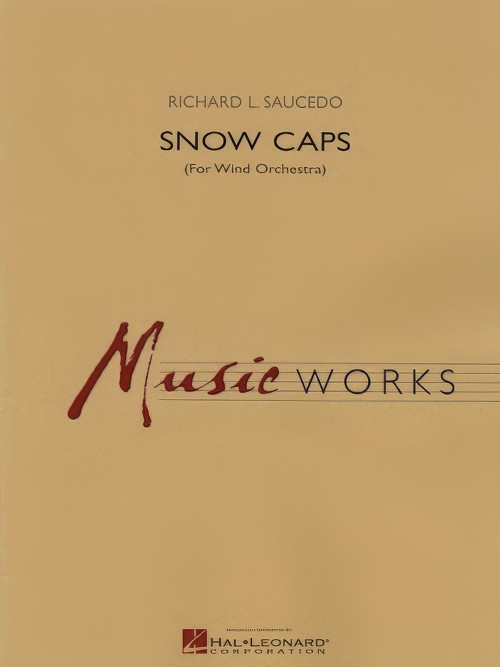 £89.99
£89.99Snow Caps (Concert Band - Score and Parts) - Saucedo, Richard L.
Commissioned by the 2004 Jefferson County Honor Band, Denver, CO, and drawing musical inspiration from the awe-inspiring surrounding mountain peaks, this major work from Richard Saucedo explores a wealth of colors and emotions possible with today's wind orchestra. At times sensitive and delicate with soloistic passages, and alternately incessantly rhythmic and powerful, this composition displays complete command of the idiom and a creative sense of harmony and form. The scoring includes an important part for piano as well as expanded parts for mallet percussion.Duration: 5:50
Estimated dispatch 7-14 working days
-
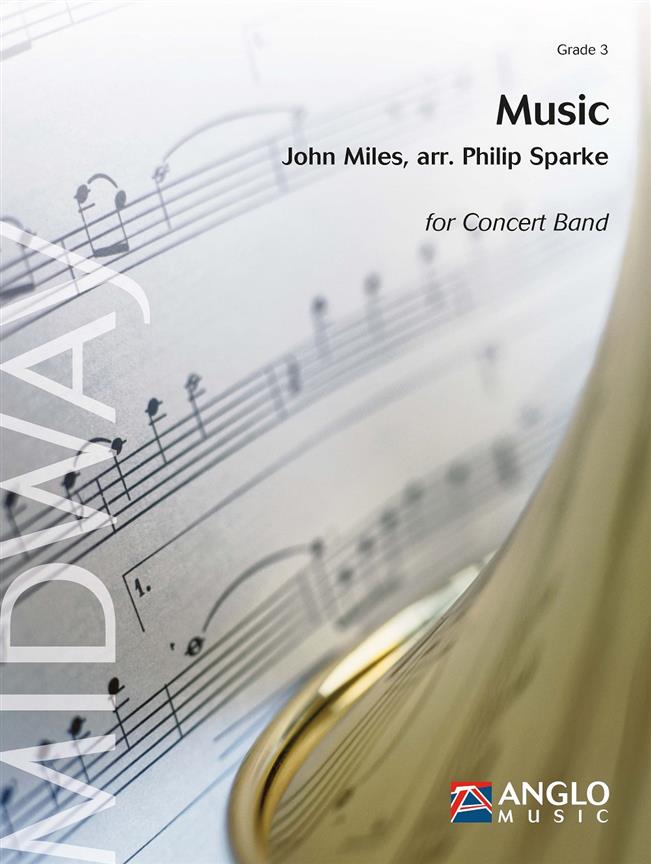 £106.99
£106.99Music (Concert Band - Score and Parts) - Miles, John - Sparke, Philip
Born in Jarrow, northeast England, in 1949, John Miles was something of a child prodigy, learning the piano from the age of five. In the early '60s he persuaded his father to buy him a guitar and by the end of the decade he had joined a semi-professional band, The Influence. The group soon disbanded and by 1969 Miles was recording with his own group, The John Miles Band, releasing a dozen singles in the early '70s. In 1975 Miles decided to move to London and secured a deal with Decca Records. By October that year, a newly formed band, John Miles and Co, had released their debut single, Highfly, but their greatest hit, which stormed the British charts in March 1976, was Music.Duration: 6.00
Estimated dispatch 7-14 working days
-
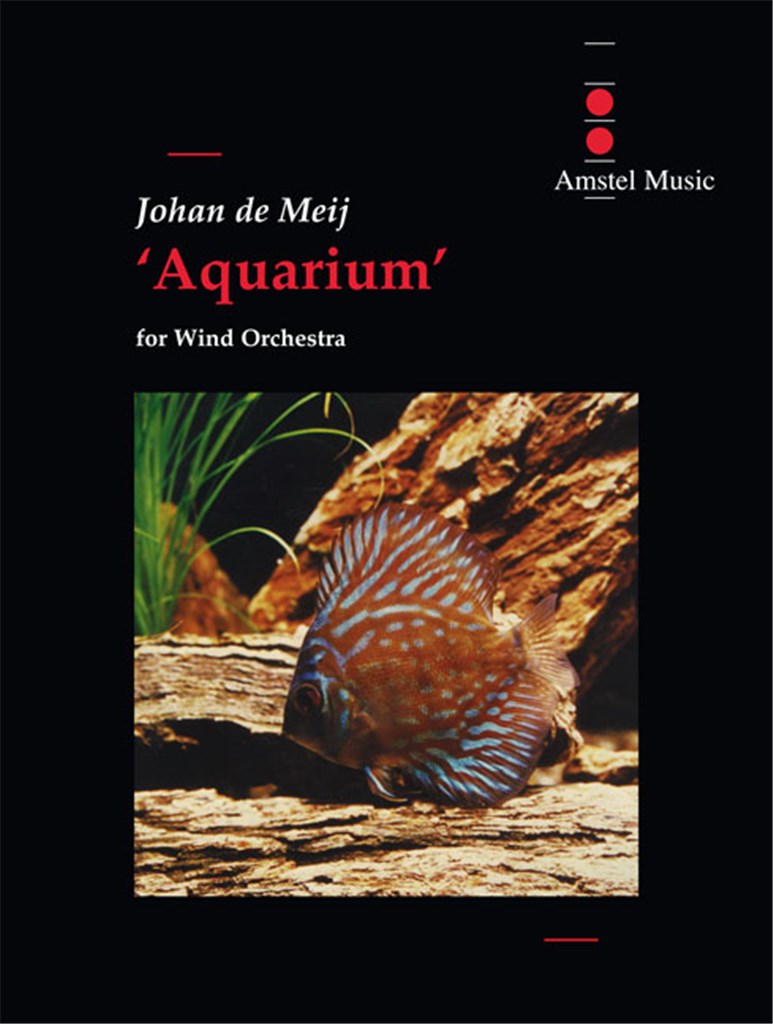 £128.00
£128.00Aquarium (Concert Band - Score and Parts) - De Meij, Johan
The Suite Aquarium is Johan de Meij's third composition for symphonic band and features six tropical fishes, each of them represented by a motif, and surfacing as such in several guises. The composition consists of three movements of which the second and third merge uninterruptedly into each other. I) Allegretto grazioso (Neon Tetra, Electric Eel and Angelfish) II) Andante / Adagio (Sea Horse and Zebrafish) III) Finale: Allegro giocoso (Guppy & Co.) The Neon Tetra motif functions as a kind of 'Leitmotiv' and describes the beautifully coloured, frisky fish: A number of variants have been derived from this theme and will also appear in the other movements. The Electric Eel in fact is not represented by a motif, but by a rhythm based on the restless electric pulses made audible in some aquaria. The Angel fish is represented by elegant cluster chords. In the second movement the Sea Horse emerges out of the water vegetation and starts a dialogue with the Zebrafish, which is represented by one melodic phrase in unison, getting more and more threatening by added parallel fifths and octaves. Simultaneously with the Sea Horse motif the Neon Tetra theme emerges, this time in 3/4 time and in Eb minor. The third movement starts with only two instruments (trumpet and xylophone), but as it is often the case with Guppies their number rapidly increases. Piccolo and Alto Saxophone introduce the Guppy Theme followed by several instrumental combinations. Every theme from the first movement 'swims by' once more, after which the principal motif leads us to a brilliant ending.Duration: 9.00
Estimated dispatch 7-14 working days
-
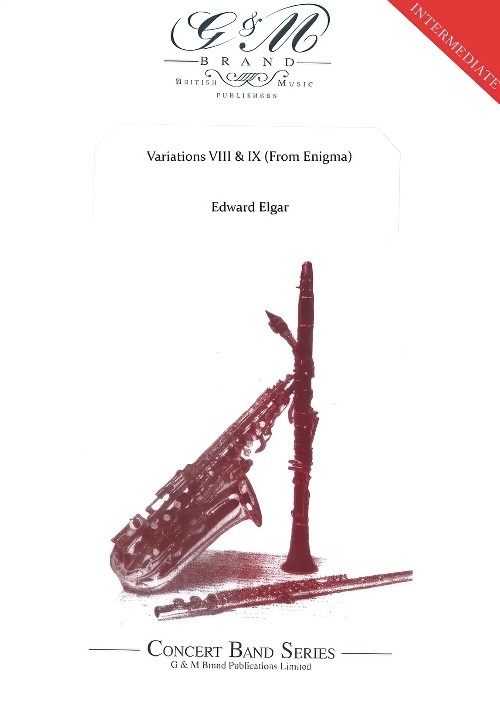 £59.95
£59.95Variations VIII & IX (From Enigma) (Concert Band - Score and Parts) - Elgar, Edward - Brand, Geoffrey
Elgar's Variations for orchestra were written during 1898-9; they are dedicated "To my friends pictured within" Each of the 14 variations is a musical portrait to one of the composer's friends. Over the 17 bar theme which inspired the Variations, Elgar wrote the word ENIGMA. Later he said, "The ENIGMA I will not explain - its "dark saying" must be left unguessed" In Variation VIII W.N. is Winifred Norbury. In 1897 local friends organised a choral and orchestral society for Elgar to conduct. The secretaryship of The Worcester Philharmonic, as the society was called, was shared by two ladies, of whom W.N.. was one She has been described as "very sedate and calm, rather like a kind governess with Elgar, but had a sense of humour - and a laugh, rather like a deep bell". Variation IX Nimrod is Elgar's deeply felt tribute toA.J.Jaeger, his German-born friend who worked for the publisher Novello and Co. His sincere support meant a great deal to Elgar. Jaeger, in German, means "hunter". Elgar concealed this in the nickname Nimrod. The variation has become extremely popular and is often played on thoughtful occasions. In this arrangement, either W.N. or Nimrod can be played alone. However, in the Variations they are linked by Elgar in an inspired manner.
Estimated dispatch 7-14 working days
